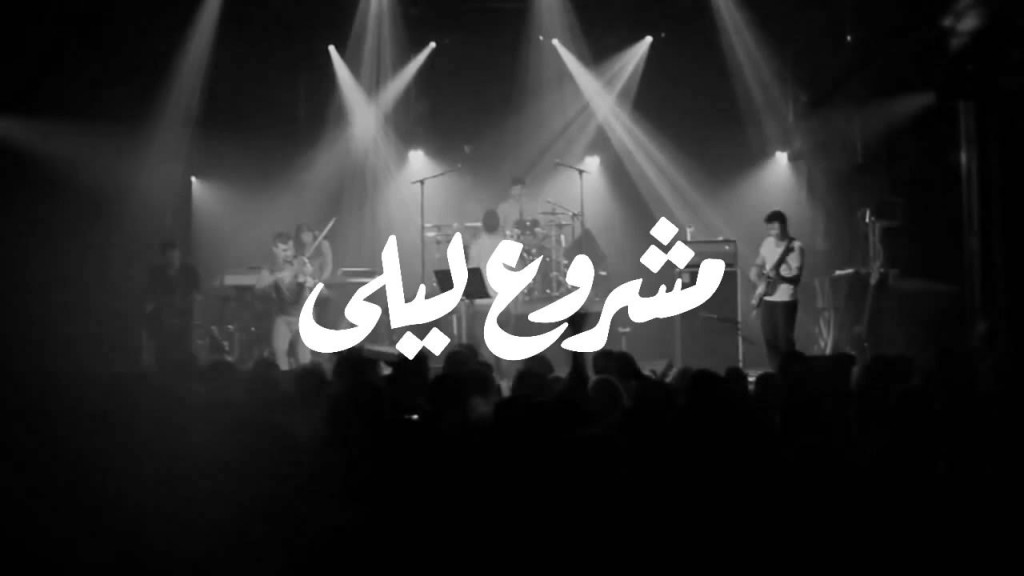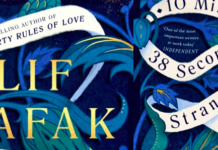
On Friday, Nov. 28, a group of friends and I were getting pumped for a concert in Istanbul that we had all been looking forward to for weeks. The band that we were seeing is one of my favorites: Mashrou’ Leila. They are a Lebanese alternative rock-meets-indie-meets-folk group that was originally formed at my alma mater, the American University of Beirut, in 2008. The members, vocalist Hamed Sinno, violinist Haig Papazian, guitarist Firas Abu-Fakher, bassist Ibrahim Badr, and drummer Carl Gerges, all came together after Papazian and two former members of the group posted an open call for musicians to jam during finals as a way to alleviate some stress from exams (which are notoriously hell at AUB, especially for the art and design students of which ML mostly consists of).
Once Sinno, Abu-Fakher, Gerges, and Badr began jamming with the group, and after lots of encouragement from friends and fellow students, they began performing some of their original compositions for live audiences and called themselves “Mashrou’ Leila.” The name is a play on words that means both “midnight project” (since it was started by students studying late in the night for exams and working on design projects) and “one night stand” in Arabic.
As they grew in popularity, they also sparked controversy over “their unabashed and critical lyrics on Lebanese society, failed love, sexuality and politics.” Fast-forward to 2014, and Mashrou’ Leila has become one of the biggest musical sensations out of Lebanon since The Sea-Ders. Combining compelling Arabic lyrics about contentious social and cultural issues with powerful rhythms and melodies that send shivers down your spine, Mashrou’ Leila is a perfect blend of traditional and modern. They recently released their third album and continue to tour around the world in the Middle East, Europe, and North America – constantly encouraged by both the events in the Arab world as well as by the legions of fans within the Lebanese diaspora.
Coming back to the Friday concert, I had history on my side. I attended AUB from 2009-2012, and while I was there, I remember seeing Hamid hanging around Hamra (the area around AUB that is traditionally attributed with being a liberal, pluralistic and intellectual area in Beirut), and I once had a beer with him outside of Sam’s Beverages off Hamra Street. Someone once told me that while I was at Rabbit Hole – one of the regular pubs my fellow students and I would frequent – I had been talking to one of the members of Mashrou’ Leila and didn’t even know it. This was all before I had ever even heard of the band. These guys were all just regular students, so of course we had many close mutual friends. After I fell in love with their music (which I assure you, is quite easy to do even if you don’t speak Arabic), I was determined to see them perform live. Unfortunately, I kept missing their big shows for one reason or another. For instance, I missed their famous show at the Beirut Hippodrome that people still talk about today because I had flown to the U.S. for a month that summer.
So, needless to say, I was excited to finally get the chance to see them in concert; it was something I could check off my bucket list as better late than never. Though perhaps I built it up too much in my head. Perhaps it was that Bronx Pi Sahne wasn’t really the best venue for them. But whatever the case, I was honestly disappointed with the show. This review is not meant to criticize the band as a whole — I really encourage everyone to check out their music (links below). But in terms of a live show, I was really underwhelmed. They took the stage and opened with one of my favorite songs. Nearly an hour and a half later, our voices cracking from singing along, our arms tired from waving the Lebanese flag, and after their signature photo op with the audience and a placard that states the city and the date that they’re performing, it was over. Sure, after many cheers for an encore, they did come out and play another song (I’ll definitely give them that). However, I still felt a bit dissatisfied.
As I reflected on it after the show, I told my best friend (who is Lebanese) that they played all the songs I wanted to hear and they sounded great – just like on the albums, which is very impressive to me in terms of musicianship. But, the concert itself was a bit boring, kind of sterile, and way too mechanical. I felt like I was just consuming the music; I didn’t really feel a part of the concert. So while the music was fine, there was a lack of engagement and fun: They didn’t look like they were having fun and they didn’t interact with the audience very much. For me, after many years of waiting to see them, it was anti-climatic.
Now, with that said, I can also see why that may be the case. They tour A LOT, so I can imagine they might just need a break or are probably really tired themselves. Another factor is that, while the Turkish audience was enjoying it, from what I’m told, the band really shines when they play in front of an Arabic-speaking audience (especially a Lebanese one). And knowing the Lebanese (as a Lebanese-American myself), I can definitely understand that. It may also be more difficult to connect to their music if you are divorced from the socio-cultural and political phenomena they sing about and if you don’t speak Arabic. I regret not seeing them in Lebanon because the crowds there are apparently electric when the band plays.
I suppose you can’t have everything, and I would definitely give them another chance. After all, I still love their music. If you don’t know them, I highly recommend you check out some of my favorite songs: Raksit Leila, Im Bimbillila7, Inni Mnih, Shim El Yasmine, and my all-time favorite, Fasateen. Don’t speak Arabic? No problem, I have you covered. Check out this site for translations of their lyrics in English as well as other languages (but unfortunately no Turkish). You can also check out their official site to buy albums, follow them on social media, and check out their upcoming tour dates.
I’m not sure when they will come to Turkey again, perhaps next year. But when they do, I encourage you to give them another chance as well or even better: If you’re planning a trip to Lebanon, wait until they’re performing and see them in their element. In the meantime, check out their music, feel their angst and anxiety, and empathize with the many manifest feelings experienced by young adults in Lebanon: The confusing and exasperating reality of being caught in-between familial, social, political and cultural pressures and personal choice.










